Basic Knowledge of Sewing - Coverstitch
- Home
- Services
- JUKI e-learning
- Basic Knowledge of Sewing - Coverstitch
Course overview
- Course aim
- Focuses on the explanation of the main adjustment points (adjustment methods) that affect the formation of seams in coverstitch.
The purpose of this course is to provide participants with the knowledge and skills to deal with stitching problems such as stitch skipping that may occur in actual sewing operation. - Target persons
- Sewing machine maintenance staff / Intermediate-level sewing operator
- Lecture time
- Approximately 300 minutes (Total video play time: Approximately 100 minutes)
- Supported language
- English / Japanese
Course details
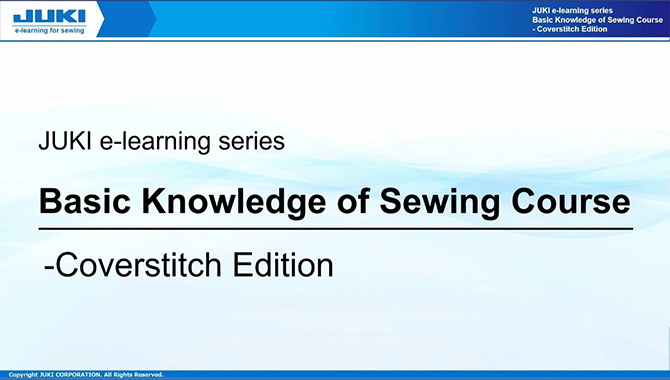
Chapter 1 : "Basic Knowledge of Sewing" - Coverstitch Edition
Learn about the seams that can be sewn with industrial sewing machines and the sewing problems that can easily occur.
Table of contents
- 1.1Types of Stitches
- 1.2Types of chainstitches
- 1.3Problems experienced in sewing process
- 1.4Summary
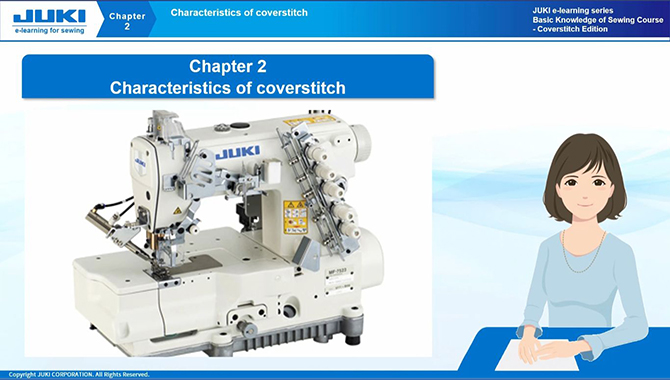
Chapter 2 :Characteristics of coverstitch
Learn about the characteristics of coverstitch seam shapes and how coverstitch seams are formed.
Table of contents
- 2.1Seam shape and characteristics
- 2.2Threading
- 2.3Formation of the coverstitch seams
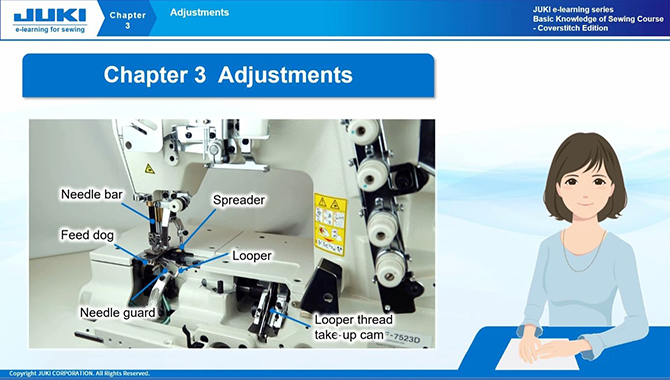
Chapter 3 :Adjustments
This course teaches how to adjust the needle bar, looper, spreader, needle guard, looper thread take-up cam, and feed dog which are the main adjustment points to form the seam of coverstitch sewing machine.
Table of contents
- 3.1Adjustment of the rocking thread take-up
- 3.2Adjustment of the needle thread loop using the eccentric cam of rocking thread take-up
- 3.3Spreader adjustment
- 3.4Adjustment of the looper and needle bar timing (Synchronization)
- 3.5Amount of looper gauge
- 3.6Needle height<
- 3.7Looper avoid motion and looper locus
- 3.8Reinstalling the cover after looper adjustment
- 3.9Adjustment of the needle guard
- 3.10Feed dog adjustment
- 3.11Adjustment of other feed settings
- 3.12Looper thread take-up cam adjustment
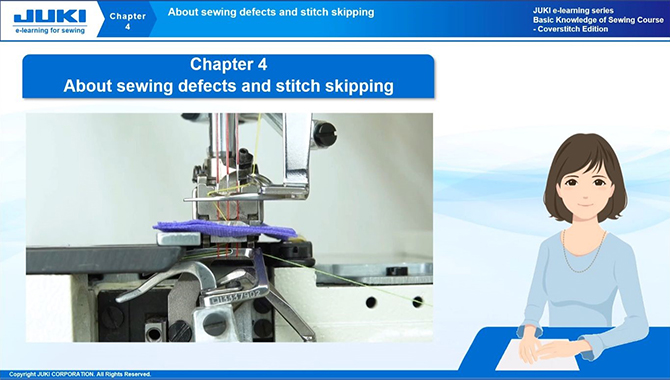
Chapter 4 :About sewing defects and stitch skipping
Learn how to identify factors and take countermeasures when stitch ploblems or stitch skipping occur.
Table of contents
- 4.1The needles fail to catch the spreader thread
- 4.2The looper fails to catch the needle thread
- 4.3The needles fail to catch the looper thread (stitch skipping on the back side of the looper)
- 4.4Summary of sewing problems caused by incorrect settings
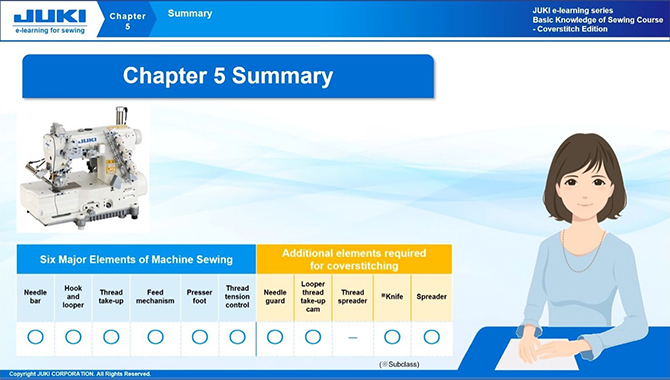
Chapter 5 :Summary
Summary of coverstitch.


